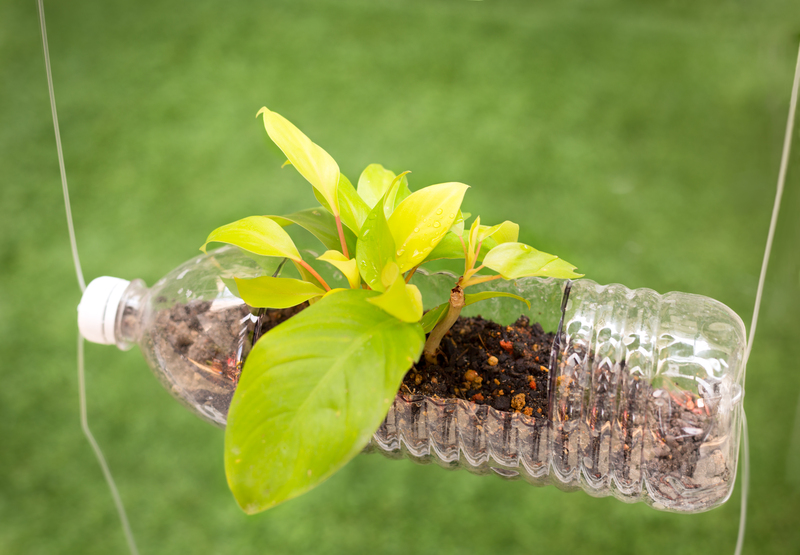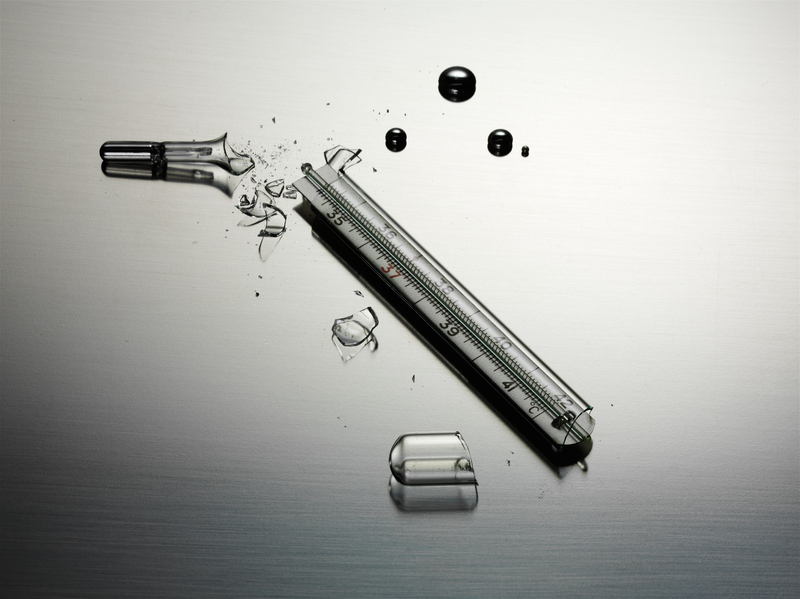Sensitive and Thorough Clutter Removal and Hoarder Clean Up for Every Situation
Are you or someone you know facing overwhelming piles of possessions, making daily life challenging and environment unsafe? Sensitive and thorough clutter removal and hoarder clean up is crucial for restoring health, safety, and quality of life. This comprehensive guide explores every aspect of decluttering and hoarding clean up, emphasizing the importance of empathy, proven methods, and long-lasting solutions to suit every unique situation.
Understanding Clutter and Hoarding
What is Clutter?
Clutter refers to the accumulation of items that impede use of living spaces. While a certain amount of clutter is normal, excessive clutter can interfere with daily activities, cause stress, and even lead to health and safety hazards. Common forms of clutter include paper piles, unused clothing, broken appliances, and more.
Recognizing Hoarding Disorder
Hoarding disorder is a distinct, recognized mental health condition characterized by persistent difficulty discarding possessions, regardless of their value. The resulting severe clutter often disrupts living spaces and significantly impairs quality of life.
Symptoms may include:
- Unable to dispose of items, even trash or things others consider worthless
- Distress at the thought of discarding possessions
- Living spaces rendered unusable (e.g., kitchens, bathrooms blocked)
- Problems with relationships, work or social situations due to clutter

The Importance of Sensitive and Thorough Clutter Removal
Deciding to undertake a clutter clean up or hoarding cleanup can be emotionally challenging. Understanding the need for sensitivity--combining empathy, compassion, and non-judgmental support--is essential for a successful and lasting outcome. A thorough clean up addresses not just the visible clutter, but the underlying causes and emotional impact as well.
Why Sensitivity Matters in Clutter Removal
- Emotional Attachment: Many individuals form strong emotional bonds with their possessions, making letting go difficult or traumatic.
- Stigma and Shame: Hoarding is often misunderstood, leading to embarrassment or social isolation. Respect and confidentiality are critical.
- Personalized Approach: Every situation is unique--cultural values, life circumstances, and the severity of clutter all affect the cleanup process.
The Risks of Unsympathetic Clutter Removal
Forced or insensitive cleanups can cause immense distress, damage trust, and worsen hoarding behaviors. That's why hiring professionals trained in sensitive and thorough hoarder clean up is highly recommended. They can balance practical decluttering with compassionate support, ensuring a more positive outcome.
Comprehensive Clutter and Hoard Clean Up Process
A successful clutter removal and hoarder clean up operation follows a series of carefully planned steps to ensure the environment is restored safely and respectfully.
1. Initial Assessment
- Site Inspection: Assess the level of clutter, health hazards, and determine access challenges.
- Personal Needs: Discuss preferences with the affected person or family, recognizing emotional triggers and boundaries.
2. Customized Action Plan
- Timeline Creation: Set realistic milestones, whether the cleanup will happen in a few hours, days, or in several stages.
- Roles & Resources: Determine who will be involved and what equipment will be needed for a safe and efficient clean up.
3. The Clean Up Process
- Item Sorting: Carefully categorize items into what to keep, donate, recycle, or dispose of.
- Hazard Removal: Identify and handle hazardous materials (e.g., mold, sharp objects, expired medications or food) using proper safety protocols.
- Deep Cleaning: Once clutter is removed, deep cleaning can address stains, dirt, and odors.
4. Repair and Restoration
- Home Repairs: Address damage caused by clutter (e.g., blocked plumbing, damaged flooring or walls).
- Pest Control: If applicable, manage any infestations revealed during the cleanup.
5. Organization and Maintenance Strategies
- Organizational Systems: Set up accessible storage, labeling, and routines to help maintain a clutter-free space.
- Ongoing Support: Provide links to counseling, ongoing cleaning services, and peer support networks as needed.
Emotional and Mental Health Considerations
The emotional journey of thorough hoarder clean up can be complex. Working with professionals who understand mental health concerns related to hoarding makes the process less traumatic and more effective in the long term.
Tips for Family Members and Friends
- Practice Patience: Change takes time. Avoid pressuring or shaming your loved one.
- Offer Practical Support: Assist with sorting, transportation, or connecting with professional services.
- Encourage Professional Help: Mental health professionals can address underlying issues such as anxiety, trauma, or depression.
Role of Professional Hoarder Clean Up Services
Professional clutter removal companies specializing in sensitive and thorough hoarder cleaning bring more than just cleaning skills--they act as mediators, provide emotional support, and offer ongoing maintenance advice.
Special Situations: Tailoring the Approach
Every hoarding or clutter scenario is unique, requiring a tailored clean up approach:
- Elderly Hoarders: May need extra care, mobility assistance, or collaboration with adult protective services.
- Estate Clear-Outs: After illness or death, family may need support in managing or disposing of accumulated possessions compassionately.
- Rental & Landlord Concerns: Addressing damage and legal compliance respectfully can prevent eviction and homelessness.
- Extreme Hoarding Cases: Structural or biohazard remediation may be necessary alongside thorough cleaning.
Benefits of Sensitive and Thorough Clutter Removal and Hoarder Cleanup
- Improved Health & Safety: Removal of physical hazards, allergens, and pests reduces risk of injury and illness.
- Emotional Relief: Clean, open spaces foster calm, reduce anxiety, and improve overall wellbeing.
- Enhanced Quality of Life: Greater functionality and pride in one's home supports independence and better relationships.
- Preserved Dignity: Respectful, non-judgmental clean up restores self-esteem and reduces stigma.
How to Choose the Right Clutter Removal or Hoarder Clean Up Service
When selecting a professional decluttering or hoarder clean up company, consider the following:
- Experience: Choose teams with proven experience in sensitive hoarding and clutter situations.
- Training: Look for certifications in biohazard handling, safety, and mental health sensitivity.
- Compassion: Reviews and testimonials should reflect a caring, discreet approach.
- Insurance & Licensing: Ensure the company is properly insured and follows local laws.
- Comprehensive Services: Ideally, services include everything from clutter removal to home repairs and organizational help.
Questions to Ask Before Hiring
- How do you ensure client confidentiality and respect during cleanups?
- Do your staff have specific training for hoarding disorder or mental health sensitivity?
- What is your cleanup process from start to finish?
- Will you help with donations, recycling, and proper disposal?
- Can you provide references or testimonials from past clients?
DIY Clutter Clean Up: When and How
For some, starting the decluttering process independently is possible. Here are tips to make a DIY sensitive and thorough clutter removal safer and more organized:
- Start Small: Focus on one area or category at a time to avoid feeling overwhelmed.
- Enlist Help: Ask trusted friends or family to assist, especially for emotional support or heavy lifting.
- Set Realistic Goals: Break down tasks into manageable steps and celebrate progress.
- Use Protective Gear: Gloves, masks, and sturdy shoes protect against potential hazards.
- Arrange Disposal: Research proper disposal or donation options for different types of items.
If at any point the task becomes emotionally, physically, or logistically overwhelming, don't hesitate to consult a professional hoarder clean up service.

Preventing Recurrence: Maintaining a Clutter-Free Environment
Long-term success with thorough hoarder clean up depends on follow-through and sustainable habits. Here are techniques that help prevent clutter from accumulating again:
- Set Daily or Weekly Routines: Small regular tidy-up sessions keep possessions manageable.
- Designate Spaces: Assign specific places for belongings and minimize "junk drawers."
- Adopt the One-In, One-Out Rule: Donate or discard an item every time a new one is brought home.
- Seek Ongoing Support: Counselors, support groups, and professional organizers can provide accountability.
- Assess Purchases: Before acquiring anything, ask if it adds value or will only add to clutter.
Conclusion: Restoring Peace and Dignity Through Sensitive and Thorough Clutter Removal
Every situation--from a single overflowing room to an entire house filled with possessions--deserves a respectful, attentive approach. Sensitive and thorough clutter removal and hoarder clean up isn't just about tossing out old items; it's about transforming lives, restoring health, and helping people reclaim their spaces and self-esteem.
Whether you turn to compassionate professionals or embark on your own decluttering journey, remember that understanding, patience, and a step-by-step plan pave the way to a fresh start. Don't let clutter or hoarding hold you back--embrace the possibility of change and a happier, healthier home today.
